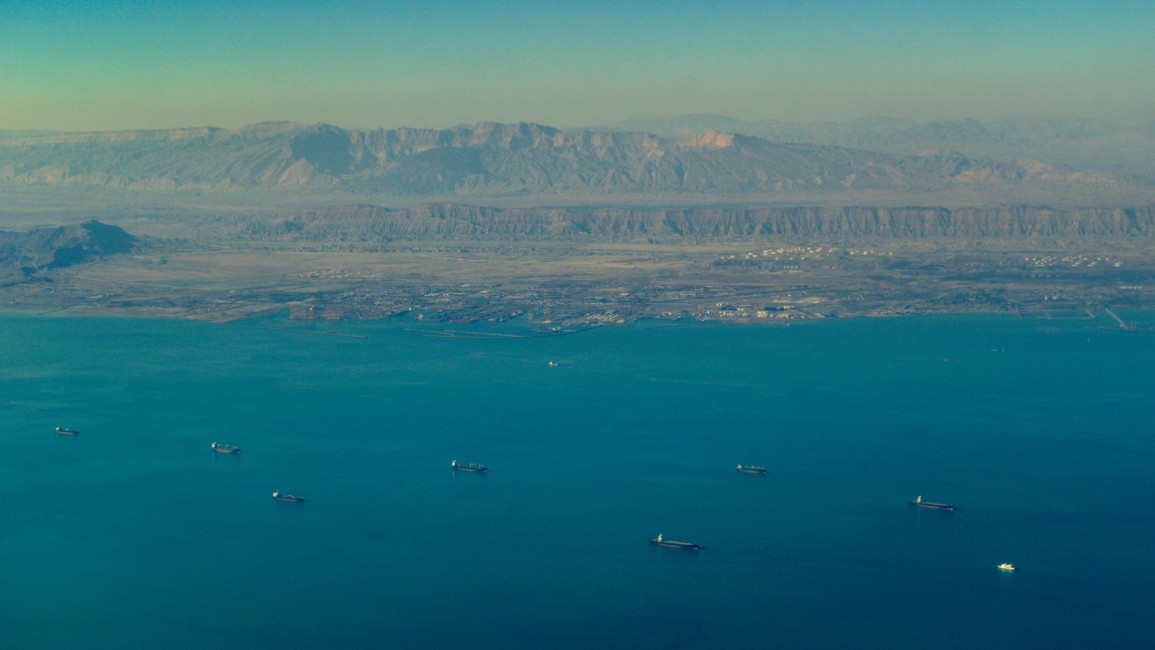Iran says could close Strait of Hormuz, views Israeli presence in UAE as 'threat'
The commander of the Iranian Revolutionary Guard Corps' naval forces said on Tuesday that Israel's presence in the UAE was viewed as a threat by Tehran and it could close the Strait of Hormuz if necessary.
Iran has threatened to retaliate for Israeli airstrikes earlier this month on its consulate in Syria's capital Damascus which killed seven Revolutionary Guards officers.
The Damascus attack, condemned by Arab states ranging from Saudi Arabia and Qatar to Egypt and Jordan, killed senior Iranian Revolutionary Guard Corps (IRGC) commander Mohammad Reza Zahedi and his deputy Mohammad Hadi Hajriahimi.
"We do not get hit without striking back, but we are also not hasty in our retaliation," IRGC Navy Commander Alireza Tangsiri said, according to Iran's semi-official Student News Agency.
"We can close the Hormuz Strait but are not doing so. However, if the enemy comes to disrupt us, we will review our policy."
About a fifth of the volume of the world's total oil consumption passes through the strait on a daily basis.
An average of 20.5 million barrels per day of crude oil, condensate, and oil products passed through Hormuz in January–September 2023, data from analytics firm Vortexa showed.
The UAE, situated across the Gulf from Iran, became the most prominent Arab nation to normalise relations with Israel in 30 years under a US-brokered accord in 2020.
Abu Dhabi also has normal diplomatic and commercial relations with Tehran.
"We know that the Zionists [Israel] were not brought to the UAE for economic purposes but rather for security and military work. This is a threat to us and should not happen," added Tangsiri, the commander of the Revolutionary Guards' navy.
A replacement Damascus consulate was opened this week by Iran's Foreign Minister Hossein Amir-Abdollahian.
The attack in Syria came amid Israel's war on Gaza, which has so far killed almost 33,500 people and injured more than 76,000, mostly women and children, according to the enclave's health ministry.
The International Court of Justice in January found that Israel was plausibly breaching the UN's Genocide Convention in Gaza.
Normalisation with Israel is highly unpopular across the Arab world and is viewed by Palestinians as a betrayal of their national cause.
Iran has several proxy militias in the Arab world, including the Lebanese group Hezbollah and Yemen's Houthi rebels, and collectively they are sometimes referred to as the 'Axis of Resistance'.
Both Hezbollah and the Houthis have engaged in escalations with Israel since the Gaza war broke out.
Hezbollah chief Hassan Nasrallah has described last week's Israeli attack on Iran's Damascus consulate as violating "Iranian territory".
"This was an attack on Iran, not just Syria, this is Iranian territory that was violated," he said in a speech.
"This was a high level of assassination because he was the head of Iran's military advisers in Syria, it was the highest level of assassination for years," he said, referring to Zahedi.
Reuters contributed to this report.


![Minnesota Tim Walz is working to court Muslim voters. [Getty]](/sites/default/files/styles/image_684x385/public/2169747529.jpeg?h=a5f2f23a&itok=b63Wif2V)




![An Israeli air strike on Jabalia killed teenage journalist Hassan Hamad [Screengrab/X]](/sites/default/files/styles/image_330x185/public/2024-10/hassan%20hamad1.jpg?h=c12e0b96&itok=Rd_dyCVp)

![Israeli strikes on Beirut [Getty]](/sites/default/files/styles/image_330x185/public/2176155077.jpeg?h=a5f2f23a&itok=Xq7ypWgM)